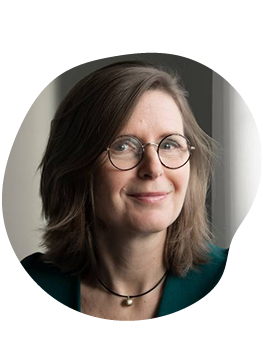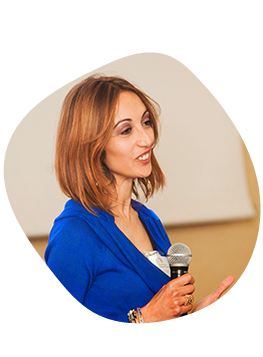Keynote Speakers
Professor Nina Christensen
Nina Christensen is a professor of Children’s Literature at the Centre for Children’s Literature and Media, Aarhus University, Denmark. Writing her PhD on Danish picturebooks 1950-1999 sparked her interest in the relationship between children’s literature and changing educational and aesthetic ideals. More recently, she discusses how children’s literature reflects changing ideals of citizenship and childhood in the articles “Children’s Literature and Representations of Childhood” (2018), “Imagining Equality: The Emergence of the Ideas of Tolerance, Universalism, and Human Rights in Danish Magazines for Children, 1750–1800” (2017) and “Thought and dream are heavenly vehicles' : Character, Bildung, and Aesthetics in Stian Hole's Garmann Trilogy (2006-2010)” (2014). She has traced the history of the autonomous, agentic child from enlightenment, via romanticism and avant-garde to contemporary children’s literature, as reflected in the entry on “Agency” in Keywords for Children’s Literature (2021, co-edited with Philip Nel and Lissa Paul). She teaches the course “Children's literature and childhood. The Interaction between concepts of childhood, and children's literature and media” at the international Erasmus Mundus MA in Children’s Literature, Media & Culture, and is the co-editor of the John Benjamins series Children’s Literature, Culture and Cognition (with Elina Druker and Bettina Kümmerling-Meibauer). Forthcoming publications include a short history of Nordic children’s literature in English (with Charlotte Appel, 2021).
Abstract: Holding the Pen, Pressing the Key: Children as Co-Authors Across Centuries
For centuries, children have been encouraged to learn to communicate and express themselves in writing. In the late eighteenth century, being able to write letters was considered an important skill for boys and girls, and, as early as 1820, a play written by a ten-year-old girl in Copenhagen was published and mentioned in international literary journals. Until now, the field of children's literature studies has focused primarily on texts produced by adults, but, today, researchers are increasingly interested in children as (co-)producers of texts.
While access to a pen and paper was historically – and in some places is still – a privilege of the few, today, many children have access to media and platforms for writing fiction and expressing themselves. In continuation of the UN Convention on the Rights of the Child, 'agency' has become a central, but also contested term for discussing children's right to and opportunity to raise their voice and influence their own situation, also when it comes to narratives and media. To a certain extent, the ideal – or idealised? – child of the 21st century has become a kind of 'superchild': a powerful, outspoken, activist child who speaks up, solves global problems and teaches powerful adults a lesson.
This lecture will discuss selected historical examples of texts produced by children, focusing on the images of childhood and adulthood they contain and the types of child agency they identify. With reference to the current research project Tiny Voices – Grand Narratives (2021-22), in which children co-produce narratives with professional authors, the lecture will also explore contemporary children's experiences of agency and their views on texts made in cooperation with other children and adults.
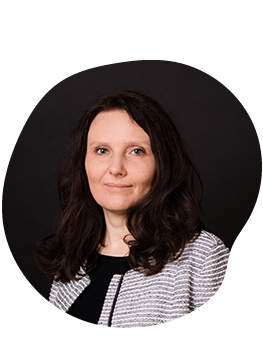
Professor Justyna Deszcz- Tryhubczak
Justyna Deszcz-Tryhubczak is an Associate Professor of Literature and Director of the Center for Young People’s Literature and Culture at the Institute of English Studies, University of Wroclaw, Poland. She is the author of Yes to Solidarity, No to Oppression: Radical Fantasy Fiction and Its Young Readers (2016). She is also the co-editor (with Irena Barbara Kalla) of Rulers of Literary Playgrounds Politics of Intergenerational Play in Children’s Literature (2021), (with Zoe Jaques) Intergenerational Solidarity in Children’s Literature and Film (2021), and (with Irena Barbara Kalla) Children’s Literature and Intergenerational Relationships: Encounters of the Playful Kind. She has served as a member of the board of the International Research Society for Children’s Literature. Her research interests include children's participation in social, political and cultural life.
Abstract: Becoming Activist in Children's Literature Studies
Activism is commonly associated with deliberate, partisan, heroic, and vigorous collective actions and events propagating and effecting social and political change. Academic activism shares these commitments by using knowledge created from inside social movements to challenge the oppressive status quo and fight social injustice. Moreover, university classrooms are important sites of activism that can foster students’ critical reflection, empower them politically, and inspire their collective responsibility and dedication to pursue freedom from oppression in and outside academia. Finally, regardless of whether we think of our research as engaged scholarship, we are hard-pressed to evidence its impact beyond academia. A result of the commodification of university education and its turning into a service industry, evaluations of impact may mean depoliticization of activist engagement and entrenchment of oppressive structures. Nevertheless, they are also a reminder that we cannot be occupied with the pursuit of knowledge for its own sake but should be ready to respond to the reality in which we live by developing invigorating modes of thought and practice. I suggest that we also often engage in implicit activism (Horton and Kraftl 2009), which manifests in small, everyday, even banal and frequently ephemeral, acts, gestures and words of care – in our research, teaching and service with readers and books – that ultimately translate into activist commitment to re-imagining how things might be otherwise. To substantiate my proposition, I explore international examples of academic activism in our field and draw on the ethics of care (Puig de la Bellacasa 2017), the new materialist concept of becoming (Barad 2007), and the discussions about collaboration, solidarity, and kinship taking place in feminist new materialisms to show that even through very modest and discrete actions we challenge oppressive and exploitative structures. Ultimately, I argue that activist research involving children’s books and young readers is likely to gain importance as a vital direction in children’s literature scholarship, contributing to its social and political impact.
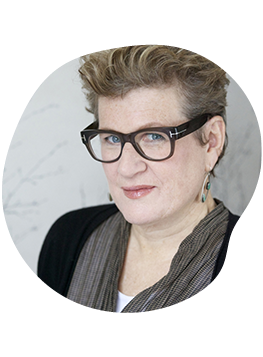
Ms Meg Rosoff
Meg Rosoff was born in Boston, educated at Harvard and St Martin’s College of Art, and has lived in London since 1989. Her first novel, How I Live Now, sold more than a million copies worldwide and was made into a feature film. She is the author of ten novels, four picture books and the McTavish series for younger readers. She has won or been shortlisted for 24 international book prizes, is a member of the Royal Society of Literature and an honorary Fellow of Homerton College, Cambridge University. She was awarded the Astrid Lindgren Memorial Award in 2016. Her most recent novel is Friends Like These, to be published in spring 2022. Meg lives in London with her husband, the artist Paul Hamlyn.
Abstract: "Do you think you’ll ever write a real book?" Troubled Children and The Trouble with Writing for Children in 2022
Telling people that you write books for children is nearly always met with a tolerant smile and the end of the conversation.
Writing childen’s books has become a hobby, like opening a cake shop or designing hats for dogs, something innumerable people have told me they’ll try “if all else fails.” Publishers are producing children’s books as if it were Netflix content or fast food — if it sells, they commission more of the same.
And yet children have never needed serious literature more. The climate crisis, the ubiquity of passive screen culture, and the rise of online pornography have quietly become major influencers in everything from brain development to body image to gender relations and politics. At the same time, children in the 21st century are being groomed by governments to conform to a standard capitalist model that favours self-interest, consumption and economic growth over intellectual and spiritual growth -- and the creation of a better world.
Childhood reading is in sharp decline.
Where, if anywhere, do books enter the conversation in a world where barely anyone reads anymore?
Dr Giuliana Fenech
This conference is being convened by Dr Giuliana Fenech. Giuliana is a Senior Lecturer in the Department of English at the University of Malta. She wrote her PhD on multimedia literature and storytelling, with a specialisation in children and young adult literature. Throughout her career, she has been involved in the set up and curation of a number of projects involving stories and multimedia, stories and human resources training, stories and children, as well as dramaturgy. She has been the recipient of numerous grants, including the Malta Arts Fund multiple times, the Federation of European Storytellers grant and an Erasmus+ fund to research the representation of girls and science in stories for children. She also runs a storytelling organisation called Lignin Stories.
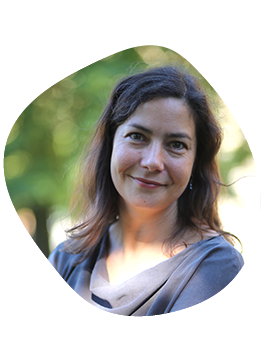
Professor Vanessa Joosen
Vanessa Joosen is a co-convener of The Child and Book Conference 2022, and Associate Professor of English literature and children’s literature at the University of Antwerp in Belgium. She is the author of, among others, Critical and Creative Perspectives on Fairy Tales: An Intertextual Dialogue Between Fairy-tale Scholarship and Postmodern Retellings (2011), which won an ALA Choice Award for Outstanding Academic Publication, and co-editor of Grimm’s Tales Around the Globe: The Dynamics of Their International Reception (2014), for which she and Gillian Lathey received the ChLA Honour Award for Edited Book. Vanessa Joosen’s most recent research focuses on the intersections between age studies and children’s literature, which has resulted in the edited volume Connecting Childhood and Old Age in Popular Media (2018) and the monograph Adulthood in Children’s Literature (2018). In 2018, she was awarded an ERC Starting Grant for the project Constructing Age for Young Readers (CAFYR), where she and her research team will use methods from genetic criticism, digital humanities, and reader response theory to study age in children’s books.
Postgraduate Student Assistants
Sandy Calleja Portelli
Elisa Cordina
Giuliana Barbaro Sant
Megan Mallia
Anne Billman
Nicole Tirchett
